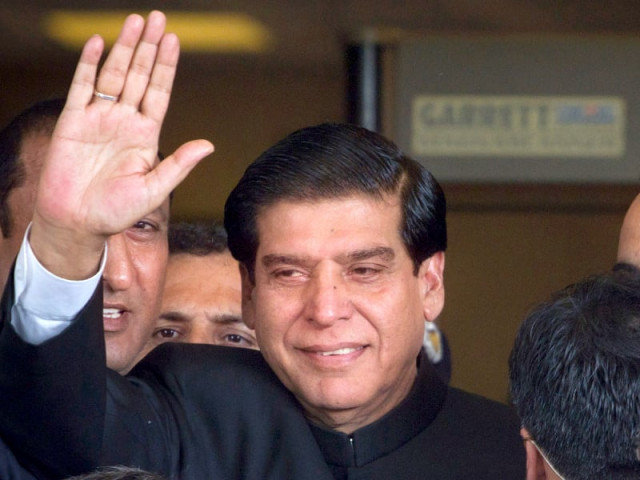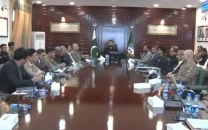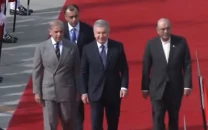Discretionary funds: Supreme Court seeks constitutional grounds
The case relates to Rs47 billion spent by ex-PM Raja Pervaiz Ashraf at his discretion.

Former prime minister Raja Pervaiz Ashraf. PHOTO: FILE
Attorney General Munir A Malik informed the Supreme Court on Tuesday that he could not get a positive response from the ministry concerned about the basic charter for the discretionary funds utilised by former prime minister Raja Pervaiz Ashraf.
Malik was asked by a three-judge bench to explain the constitutional status of the projects under the Peoples Work Programme-II. The bench, headed by Chief Justice Iftikhar Muhammad Chaudhry, is hearing the case of Rs47 billion spent by former premier Ashraf at his discretion.
“The Planning Commission has recommended that some code should be followed for PWP-I (funds given to all parliamentarians) and PWP-II by the concerned ministries and executing authorities.

“Further the ministry of planning and development has informed me that they had not made any assessment of the projects initiated under PWP-II,” said Attorney General Malik, adding that the auditor general’s office said that over 50% of the total value of schemes was not subject to Public Procurement Regulatory Authority (PPRA) rules and did not have a written record.
Malik said that the chief engineer of Pakistan Public Works Department informed him that when his staff went for on-ground inspection of projects, local residents threatened them.
Examining the discretionary funds, he said the important question was whether “we could depart with the PWP-II and if this could be converted into some grants and whether the amount spent under such grants could be at the discretion of the disbursing authority or at the discretion of the receiving individuals”.
The attorney general queried what the procedure for disbursement was in case of a discretionary grant and what the monitoring mechanism was to ensure that the funds were spent for the purpose they were released.
Appearing as amicus curiae (a party that is not involved in a particular litigation but that is allowed by the court to advise it on a matter of law directly affecting the litigation), advocate Khawaja Haris Ahmed argued that in determining the constitutionality of the PWP-II, there were four questions that needed to be addressed.
Firstly, whether or not the Constitution permits allocation of funds to members of the National Assembly at the sole discretion of the prime minister, said Haris, adding if the allocation was permissible then what would be the criteria for such allocations.
Secondly, whether the feasibility of such schemes was prepared and whether PPRA rules were followed while disbursing the discretionary funds. Thirdly, whether such funds could be disbursed in the form of grants.
Lastly, whether re-appropriations could be made and funds for the PWP-II could be withdrawn from other development works.
Responding to these questions, advocate Wasim Sajjad, representing Ashraf, said that he was not fully prepared to address the first question but could put forward his knowledge on the discretionary funds.
He doubted whether such expenditure would be questionable if the amount was approved in the budget by the National Assembly and used within the limits of the budget, adding that no amount could be spent without the approval of the parliament.
This prompted Justice Chaudhry to say that the parliament would pass budgetary allocations in accordance with the Constitution. The bench, also comprising Justice Jawwad S Khawaja and Justice Sheikh Azmat Saeed, then adjourned the hearing for Wednesday (today).
Published in The Express Tribune, July 17th, 2013.



















COMMENTS
Comments are moderated and generally will be posted if they are on-topic and not abusive.
For more information, please see our Comments FAQ